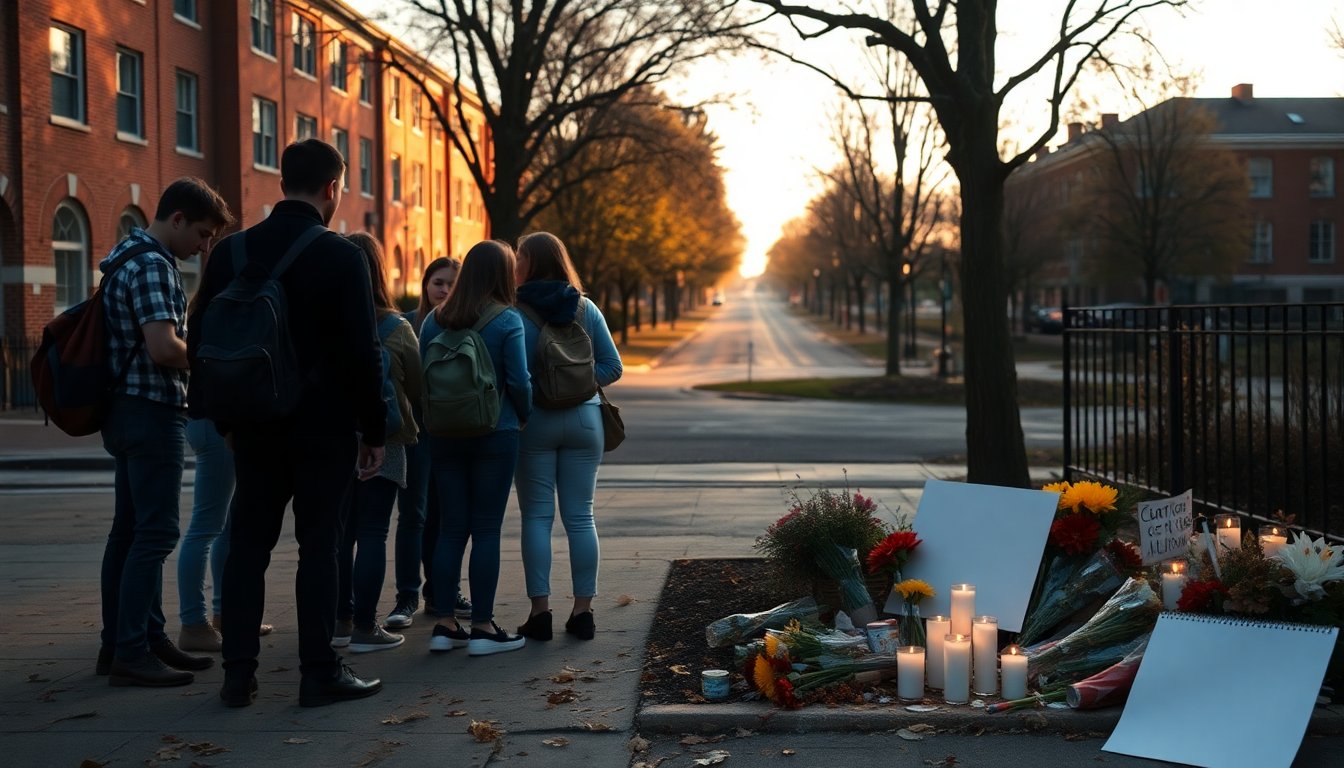Table of Contents
The Context of Charlie Kirk’s Death
On September 10, 2023, Charlie Kirk was shot dead on a college campus in Utah. This incident has reverberated throughout the political landscape. It exemplifies the escalating violence that has plagued American society. The event has prompted discussions about the responsibility of public figures in shaping the narrative surrounding such tragedies. Late-night host Jimmy Kimmel voiced his concerns, emphasizing the need for empathy and solidarity rather than anger and division. He pointed out the stark contrast between the responses of current and past presidents, underscoring a growing sentiment that leadership should foster unity in times of crisis.
Kimmel’s emotional response highlighted a troubling pattern in political discourse. Tragedies are often met with blame and finger-pointing rather than collective mourning and reflection. He lamented the ongoing school shootings, noting that this incident is not isolated but part of a larger trend that has seen hundreds of such events occur in a single year. This consistent violence raises critical questions about the state of political dialogue in America and the responsibilities of those in power.
Reactions from the Public and Media
The discourse surrounding Kirk’s death has not been limited to Kimmel’s critique. Fellow late-night host Stephen Colbert also addressed the issue, reflecting on memories of political violence from the 1960s. Colbert emphasized the futility of using violence to resolve political differences, a sentiment that resonates deeply in today’s climate of anger and division. His acknowledgment that Kirk was not just a political figure but a young father of two serves as a poignant reminder of the human cost of political violence.
Colbert’s remarks echo a broader call for understanding and compassion. He urges society to recognize the humanity behind political disagreements. In a time when the political landscape is fraught with hostility, such messages are crucial reminders that violence is never an acceptable response to differing opinions. Both Kimmel and Colbert’s responses reflect a growing frustration with the normalization of violence in political discourse, urging for a return to civility and mutual respect.
The Broader Implications of Political Violence
The rise of political violence poses significant challenges for American society. It impacts individuals directly affected by such incidents and contributes to a culture of fear and animosity. The normalization of violence in political rhetoric can lead to further escalations, creating a cycle that is difficult to break. As seen in the responses from Kimmel and Colbert, there is a growing recognition that leaders must take responsibility for their words and actions, as they hold the power to influence public sentiment.
Moreover, the implications of political violence extend beyond immediate reactions. They shape public perception and trust in institutions. When leaders fail to condemn violence or engage in inflammatory rhetoric, they risk alienating segments of the population and perpetuating divisions. This cycle of violence and division ultimately undermines the democratic principles that underpin American society.
As we reflect on the recent events surrounding Charlie Kirk’s death, it becomes clear that addressing the root causes of political violence requires a collective effort. It necessitates a commitment from leaders, media, and the public to foster a culture of empathy, dialogue, and understanding. Only through such efforts can we hope to break the cycle of violence and build a more united society.


